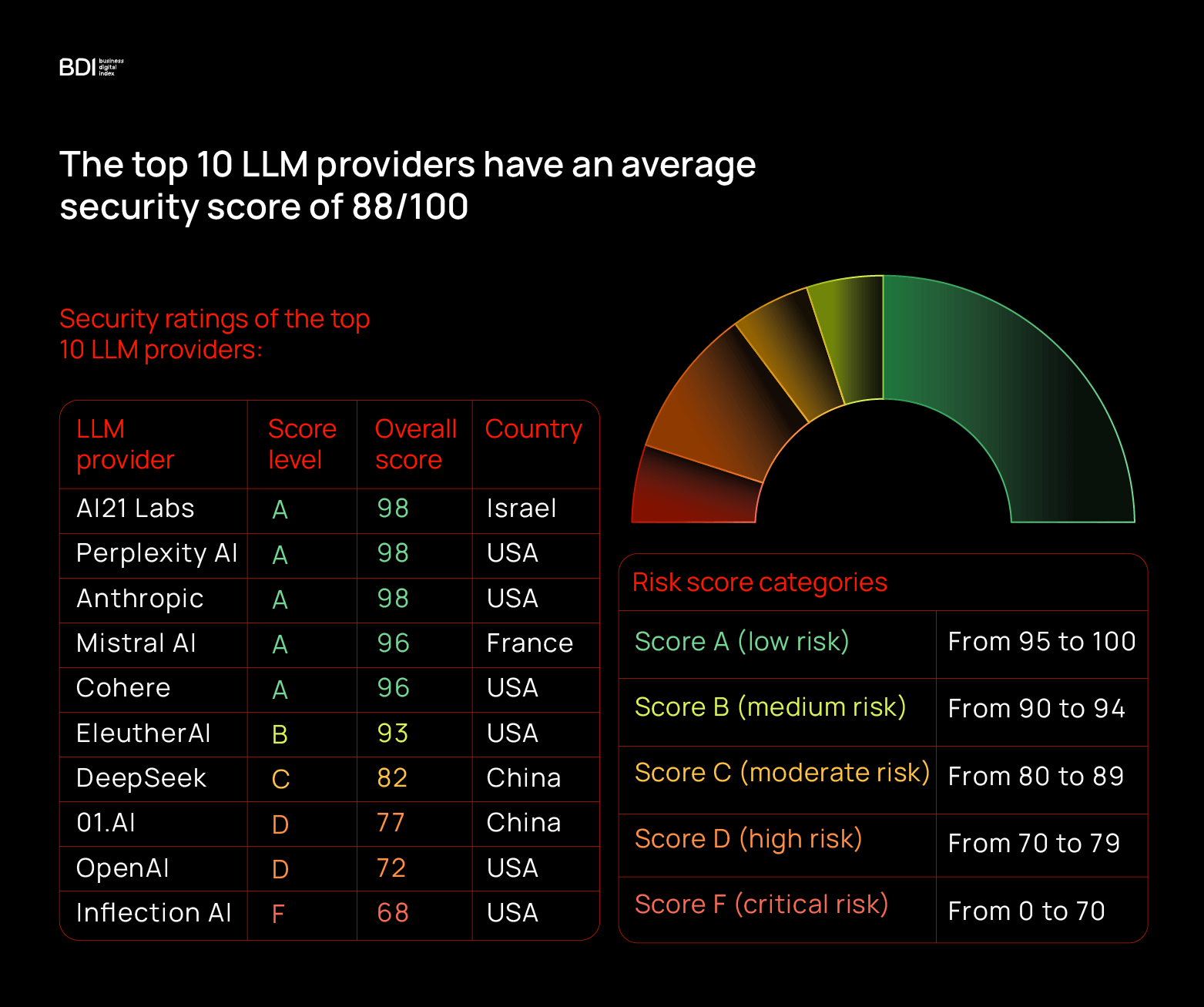Are your AI tools secure? New analysis reveals gaps among market leaders
2025-06-26
Even 58% of large language models (LLM) users have tried two or more different LLMs, and worldwide companies are rapidly adopting them to streamline operations, create content, and assist employees. However, the new Business Digital Index analysis reveals that many AI tools used in the workplace may not be as secure as businesses assume, posing risks to sensitive corporate data and brand reputation.

Get your Business Digital Index report
Take a moment to understand how your company appears to the outside world. This report uses verified public data to highlight potential risks.
